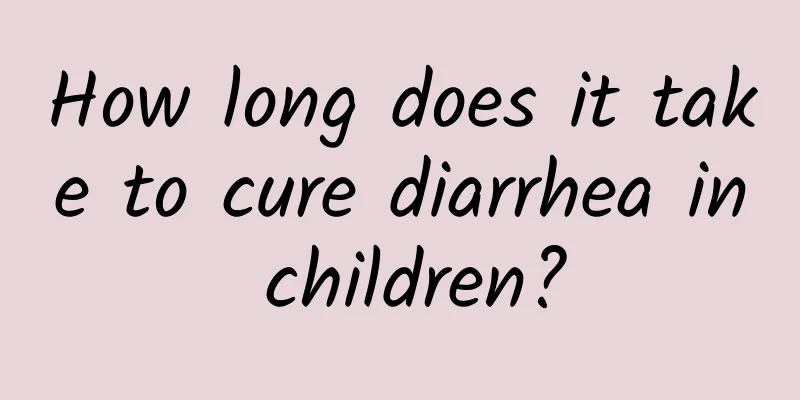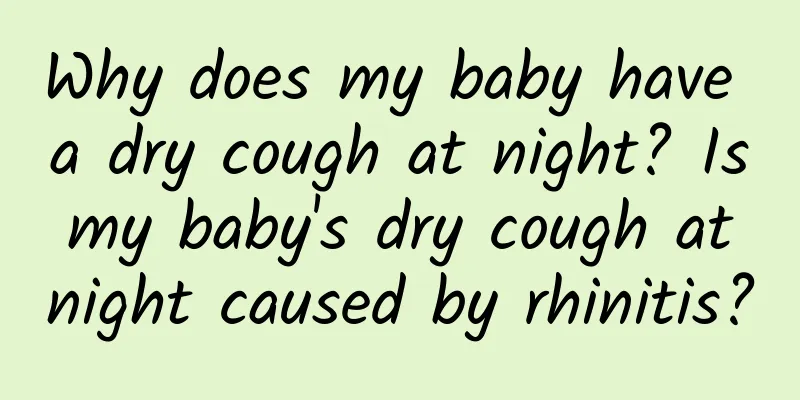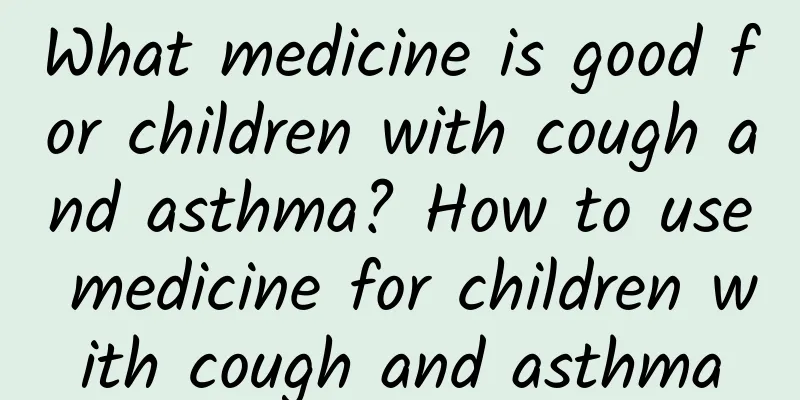How long does it take to cure diarrhea in children?

|
Pediatric diarrhea is the second most common disease after respiratory tract infection. The most common cause of diarrhea in children is infection. In addition, children's gastrointestinal function is not perfect, and allergies to breast milk or certain foods can also cause diarrhea. How can we prevent and care for pediatric diarrhea? 1. Breastfeeding can prevent diarrhea Breastfeeding should be especially adopted in the first few months after birth. Breast milk is the most suitable for infants' nutritional needs and digestive ability. Breast milk contains a variety of digestive enzymes and antibodies needed by children. Various nutrients are very suitable for children's digestion and absorption. It can neutralize Escherichia coli enterotoxins and prevent infection with Escherichia coli. It is much better than cow's milk and breast milk substitutes. Except for those suffering from tuberculosis, heart and kidney and other chronic diseases, breastfeeding should be promoted. Attention should be paid to the correct feeding method, regular breastfeeding, and avoid weaning in summer and when the child is sick. Breastfeeding can prevent diarrhea in children. 2. Use a bowl and spoon instead of a bottle Bottles, especially rubber nipples, are easily contaminated and difficult to clean and disinfect. They are easily contaminated and can cause diarrhea in children. Use a bowl or spoon instead, which has less chance of contamination than a bottle. 3. Timely fluid replenishment to prevent dehydration Most cases of diarrhea in children start very quickly. Frequent diarrhea can cause rapid loss of water and nutrients in the body, resulting in acute dehydration. At home, parents can add 20 grams of sugar (two level spoons) and 1.75 grams of salt (half a beer bottle cap) to 500 ml of boiled water (or rice soup) to make oral rehydration solution. Since children with diarrhea have a higher demand for fluids than usual, they should be encouraged to drink more at the beginning. Children under 2 years old can supplement with 50 to 100 ml of oral solution after each diarrhea, and the daily intake should not be less than 500 ml; those over 2 years old should drink as much as possible, with a daily intake of not less than 1000 ml or even more to prevent dehydration. If the child has symptoms of dehydration, he should go to the hospital immediately and continue to replenish oral fluids on the way. 4. Add complementary food on time Children grow and develop rapidly. Whether they are breastfed or bottle-fed, complementary foods should be added on time to meet their nutritional needs. When adding complementary foods, the variety should not be too many, and the changes should not be too frequent. Only after the baby gradually adapts to the new food can other foods be gradually added. Specifically, when adding complementary foods, pay attention to the baby's digestive ability. Only one type can be added at a time, from a small amount to a large amount, and gradually increase. Generally, vitamin C and D are added half a month after birth, vegetable soup, milk cake or rice paste are added at 2 to 3 months, and egg yolks, minced meat and chopped vegetables are added at 4 to 6 months. 5. Pay attention to the quality of your diet When mixed feeding and artificial feeding are adopted due to insufficient breast milk or lack of breast milk, attention should be paid to diet adjustment. It is not advisable to feed rice paste or porridge and other foods too much or too early to avoid carbohydrate indigestion and affect the growth and development of children. If infants from birth to 3 months do not have enough breast milk, they can eat milk or soy milk to supplement. Whether using cow's milk or milk substitute, it needs to be properly diluted to facilitate digestion and absorption. When the appetite is poor, it is not advisable to force feeding. 6. Enhance physical fitness Usually, we should strengthen outdoor activities, improve the ability to adapt to the natural environment, pay attention to physical exercise of children, strengthen their physical fitness, improve the body's resistance, and avoid infection with various diseases. 7. Avoid adverse stimulation Children should avoid excessive fatigue, fright or excessive mental stress in their daily lives, as these may cause diarrhea in children. 8. Do not abuse antibiotics In fact, more than half of pediatric diarrhea is caused by viruses or improper diet. For diarrhea caused by these reasons, antibiotics are not only ineffective, but will kill the normal flora in the intestines, causing flora disorders and aggravating diarrhea. |
<<: Can diarrhea in children be cured?
>>: Is the cure rate for diarrhea in children high?
Recommend
The exact location of mumps
The exact location of mumps refers to the locatio...
Can polio be cured?
Polio is a relatively serious disease that troubl...
Symptoms of relapse of kidney disease in children
Although children's kidney disease can achiev...
What is the cause of baby's dry cough?
In many cases, when babies cough, there is no phl...
Is breast milk diarrhea harmful to the body?
What harm will breast milk diarrhea bring to the ...
Is Kawasaki disease in children serious? Can it be cured?
Although Kawasaki disease in children may sound s...
What is the cause of low globulin? What disease causes low globulin?
Low globulin level is a relatively common conditi...
What foods should not be eaten by people with phenylketonuria
What foods can't be eaten by people with phen...
What foods should adults with hand, foot and mouth disease eat
Hand, foot and mouth disease in adults can be rel...
What are the symptoms of ADHD?
ADHD, also known as attention deficit hyperactivi...
What causes neonatal jaundice?
What causes neonatal jaundice? There are many cau...
What are the causes of hand, foot and mouth disease in adults?
Adults may also develop hand, foot and mouth dise...
Introduction to diet for children with pneumonia
When parents find out that their children have di...
How to treat indigestion in children? What are the dietary remedies for indigestion in children?
Nowadays, there are many children who don’t like ...
Can Kawasaki disease be treated without surgery?
Can Kawasaki disease be treated without surgery? ...









